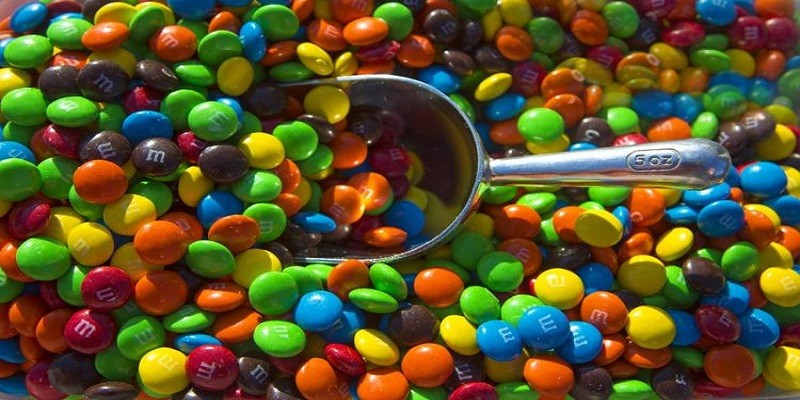Last Updated on May 30, 2024
Yes, you can eat M&Ms while pregnant, but moderation is key. Consuming M&Ms in small amounts is generally safe, but it’s important to be mindful of their high sugar and fat content. Always consult with your healthcare provider for personalized advice.
Pregnancy often brings about cravings for various foods, including sweets like M&Ms. While it’s natural to indulge occasionally, it’s crucial to understand the nutritional value and potential risks associated with consuming M&Ms during pregnancy. This article will explore whether M&Ms are safe to eat while pregnant and provide guidelines for enjoying them responsibly.
What is M&Ms?
M&Ms are colorful, button-shaped chocolates produced by Mars, Incorporated. They come in various flavors, including milk chocolate, peanuts, and caramel. Each candy is coated with a thin, hard shell, which is often brightly colored. M&Ms are popular worldwide and are commonly enjoyed as a snack or used in baking and desserts.
Nutritional Value of M&Ms
| Nutritional Value | Details |
|---|---|
| Calories | 240 per 1.7 oz package |
| Total Fat | 10 g (15% DV) |
| Saturated Fat | 6 g (30% DV) |
| Trans Fat | 0 g |
| Cholesterol | 5 mg (2% DV) |
| Sodium | 30 mg (1% DV) |
| Total Carbohydrate | 34 g (11% DV) |
| Dietary Fiber | 1 g (4% DV) |
| Sugars | 31 g |
| Protein | 2 g |
| Calcium | 40 mg |
| Iron | < 1 mg |
| Vitamin A | 75 mg |
| Vitamin C | < 1 mg |
Risks of Eating M&Ms During Pregnancy
| Risks | Details |
|---|---|
| High Sugar Content | Can lead to gestational diabetes and excessive weight gain |
| High Fat Content | Increases the risk of preeclampsia and other complications |
| Artificial Colors | May cause allergic reactions or hyperactivity in some individuals |
| Caffeine | Contains small amounts, which should be limited during pregnancy |
Safe Ways to Eat M&Ms During Pregnancy
To safely enjoy M&Ms during pregnancy, moderation is essential. Limit your intake to small portions and avoid consuming them daily. Opt for dark chocolate M&Ms, which contain less sugar and more antioxidants. Pair M&Ms with healthier snacks like fruits or nuts to balance your diet and reduce the overall sugar intake.
Alternatives to M&Ms During Pregnancy
| Alternatives | Precautions |
|---|---|
| Dark Chocolate | Choose varieties with at least 70% cocoa to reduce sugar intake |
| Yogurt-Covered Nuts | Ensure they are low in added sugars and preservatives |
| Fruit and Nut Mixes | Opt for unsweetened and unsalted versions |
| Homemade Trail Mix | Include dried fruits, nuts, and a small amount of dark chocolate |
| Natural Fruit Snacks | Check for added sugars and artificial ingredients |
Experts Tips
- Moderation is Key: “Enjoy M&Ms in small amounts to avoid excessive sugar and fat intake” (source: Healthline).
- Opt for Dark Chocolate: “Dark chocolate M&Ms are a better choice due to lower sugar content and higher antioxidants” (source: BabyCenter).
- Consult Your Doctor: “Always discuss your diet with your healthcare provider to ensure it meets your nutritional needs” (source: Renown Health).
FAQs
Can I eat M&Ms if I have gestational diabetes?
It’s best to avoid high-sugar snacks like M&Ms if you have gestational diabetes. Opt for healthier alternatives like nuts or dark chocolate in moderation.
Are peanut M&Ms safe during pregnancy?
Yes, peanut M&Ms are safe if you have no peanut allergies. Peanuts provide protein and folate, which are beneficial during pregnancy (Healthline).
How much chocolate is safe to consume during pregnancy?
Moderation is key. Limit your chocolate intake to a few pieces per day to avoid excessive sugar and caffeine (Healthline).
Can artificial colors in M&Ms harm my baby?
While there’s no conclusive evidence, some studies suggest that artificial colors may cause hyperactivity or allergic reactions. It’s best to consume them in moderation (Reddit).
What are healthier alternatives to M&Ms?
Healthier alternatives include dark chocolate, yogurt-covered nuts, and homemade trail mixes with dried fruits and nuts (The Mama Maven).
Conclusion
M&Ms can be enjoyed during pregnancy in moderation. It’s essential to be mindful of their high sugar and fat content and opt for healthier alternatives when possible. Always consult with your healthcare provider to ensure your diet meets your nutritional needs and supports a healthy pregnancy.

